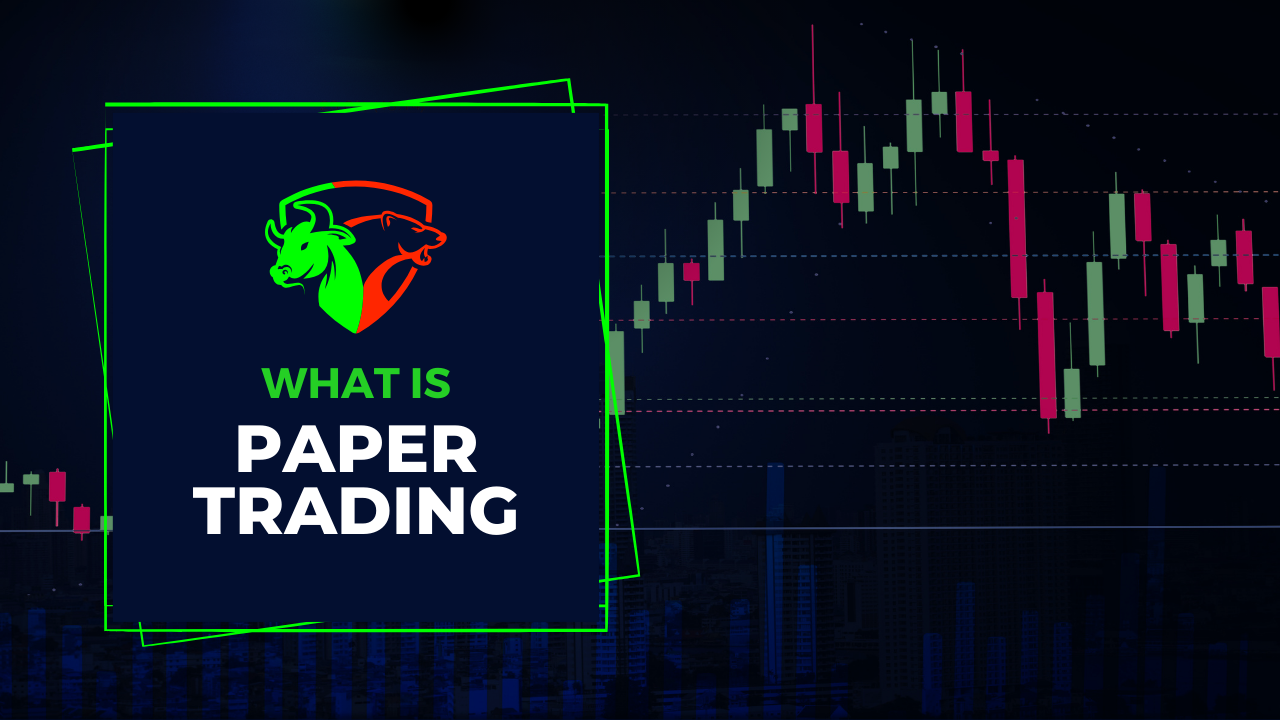Hey there market enthusiasts!
We’ve got an interesting question for you!
Do you know what Paper Trading is? If you do, that’s a step taken already on your knowledge board. If you don’t, let’s step up together, shall we/
For starters: Paper trading uses virtual currency to mimic actual trades giving traders a risk-free environment in which to practise and test ideas.
Interesting right?
Want to get started? Step one is to Open a Demat Account. You can read more about how to select the best one for you. Once that is done, here are the steps to begin trading paper:
- Pick a Platform: Pick a brokerage that offers paper trading.
- Create an Account: Set up a paper trading account and receive virtual funds.
- Create a trading plan by defining your objectives, tactics and risk tolerance.
- Execute Trades: Regularly practise and evaluate performance.
- Move to Actual Trading. After gaining confidence traders can begin real trading with a modest initial investment and progressively improve their strategy.
Paper trading has the advantages which are:
- You can experience the markets without taking any chances: Markets can have moods of their own and this is the best way to test the waters without losing anything!Paper trading offers the perfect setting for developing abilities and learning from errors without worrying about losing money.
- You can learn how to evaluate methodically:
While Paper Trading In an actual market, traders can practise their trading techniques and test the effectiveness of their strategies without risking their money.
- You can learn how to recognize the markets dynamics:
Paper trading offers a way to watch market behaviour, volatility and responses to new trends.
- You can develop self-confidence:
Let’s face it, most of us face a confidence issue while trading. Trading on paper helps traders gain the self-confidence and discipline needed for successful trading.
- You can get started on Portfolio analysis:
Traders need to be able to manage their portfolio. Practice asset allocation and risk management in a secure environment with paper trading.
Here are some mistakes to avoid in Paper Trading
While paper trading is immensely valuable, traders should avoid common mistakes to get the most realistic learning experience:
- Overtrading: Trading too frequently or without a clear plan can create unrealistic results, skewing expectations for actual trading.
- Ignoring Transaction Costs: Many paper accounts don’t account for transaction fees or slippage. In real trading, these costs can impact profitability, so remember to factor them in to avoid unrealistic profit expectations.
- Underestimating the Emotional Aspect: Trading with virtual money can’t fully replicate the emotions involved with real profits and losses. Without the pressure of real risk, traders may make decisions they wouldn’t make with actual money, which can lead to overconfidence or riskier trades.
- Risking Too Much per Trade: In paper trading, traders often take larger risks, trying strategies they might not consider with real money. This can set up unrealistic expectations and habits, so practice setting consistent, responsible risk levels.
- Not Tracking Performance: It’s essential to review and analyze each trade. Failing to do so means missing out on insights that could help improve your approach when transitioning to live trading.
- Neglecting Realistic Market Conditions: Factors like market order slippage and liquidity aren’t always reflected in paper trading. Not accounting for these can make the transition to live trading challenging.
Let’s Conclude: Paper trading provides a means for traders to gain the knowledge and abilities required to understand the complex world of financial markets. A piece of paper and virtual currency are therefore frequently the first steps towards success if you decide to embark on a trading journey.









